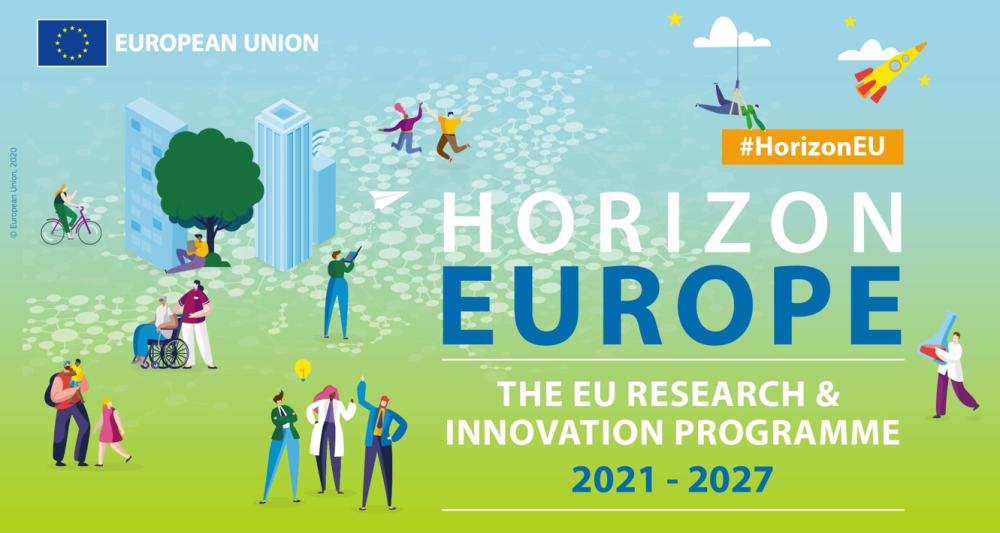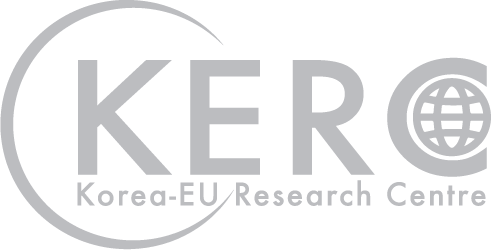The 9th EU Research & Innovation Framework Programme

Horizon Europe is the EU’s key funding programme for research and innovation with a budget of EUR95.5 billion. It tackles climate change, helps to achieve the UN’s Sustainable Development Goals and boosts the EU’s competitiveness and growth.
The programme facilitates collaboration and strengthens the impact of research and innovation in developing, supporting and implementing EU policies while tackling global challenges. It supports creating and better dispersing of excellent knowledge and technologies.
It creates jobs, fully engages the EU’s talent pool, boosts economic growth, promotes industrial competitiveness and optimises investment impact within a strengthened European Research Area. Legal entities from the EU and associated countries can participate.
Horizon Europe consists of three pillars and horizontal actions.
Excellent Science aims to bring and keep science in Europe at the highest level. Also, the actions under this pillar contribute to making Europe an attractive location for the world’s best researchers. Europe wants to attract and develop research talent and to provide access to the best research infrastructures.
Global Challenges and European Industrial Competitiveness focuses on the major challenges that the EU and the world are facing. These are listed in the Sustainable Development Goals (SDGs), among other things.
Innovative Europe focuses on innovations that strengthen the competitiveness of the European Union.
To strengthen the European Research Area (ERA), Horizon Europe uses various instruments via the horizontal pillar Widening Participation and Strengthening the European Research Area. Examples of these instruments are Teaming, Twinning and European Cooperation in Science and Technology (COST).
European Defence Fund : Exclusive focus on defence research and development
Euratom Research and Training Programme : Focus on nuclear fusion and fisson research and Training.
Funding frontier research designed and driven by the best researchers in Europe. The ERC grants are intended to fund excellent science and are open for researchers at different career stages. The program consists of 5 different grants :
The program funds individual fellowships and supports mobility of researchers internationally.
Funding new world-class research infrastructures. The work programme supports research communities to conduct research and foster innovation in their field.
Clusters
2. Culture, Creativity & Society
3. Civil Security for Society
4. Digital, Industry and Space
5. Climate, Energy and Mobility
6. Food, Bioeconomy, Natural Resources, Agriculture and Environment
Supporting policymakers, both European and national, with independent scientific evidence and support.
Focus on market-creating innovation and SME growth.
Connecting with regional and national actors to improve the overall innovation ecosystem across Europe. Ecosystems should become more connected and efficient.
Focusing on integrating research, higher education, business and entrepreneurship. EIT is an independent EU body that supports entrepreneurial talent and innovative ideas through specific calls for proposals.
Encouraging teaming & twinning, cooperation in science and technology (COST), ERA chairs continue to bring excellence to institutions in Widening countries with potential for research excellence, support to NCPs, brain circulation and excellence initiatives. It includes two new additions, the Hop On Facility and the Excellence Hubs.
Building scientific evidence & foresight, continuation of the Horizon Policy Support Facility, promoting Open Science, attractive researcher careers, citizen science, Responsible Research & Innovation, and gender equality.
EU Missions are a new way to bring concrete solutions to some of our greatest challenges. They have ambitious goals and will deliver concrete results by 2030. They support Commission priorities, such as the European Green Deal, Europe fit for the Digital Age, Beating Cancer and the New European Bauhaus.
Each mission will operate as a portfolio of actions – such as research projects, policy measures or even legislative initiatives – to achieve a measurable goal that could not be achieved through individual actions.
1. Adaptation to Climate Change Mission
Support at least 150 European regions and communities to become climate resilient by 2030
2. Cancer Mission
Working with Europe’s Beating Cancer Plan to improve the lives of more than 3 million people by 2030 through prevention, cure and solutions to live longer and better
3. Restore our Oceans and Waters Mission
Cleaning marine and fresh waters, restoring degraded ecosystems and habitats, decarbonising the blue economy by 2030 in order to sustainably harness the essential goods and services they provide
4. Climate-Neutral and Smart Cities Mission
Support, promote and showcase 100 European cities in their systemic transformation towards climate neutrality by 2030, and turn these cities into innovation hubs for all cities, benefiting quality of life and sustainability in Europe.
5. Soil Deal for Europe Mission
Caring for Soil is Caring for Life : 100 living labs and lighthouses to lead the transition towards healthy soils by 2030
HORIZON EUROPE – The most ambitious EU Research & Innovation programme ever
An ambitious budget to find solutions to our main challenges
Horizon Europe has a budget of EUR 95.5 billion for the period from 2021-2027. This includes EUR 5.4 billion from the Next Generation EU instrument, particularly to support the green and digital recovery from the COVID crisis.
Horizon Europe is complemented by the Euratom 2021-2025 research and training programme. This programme has a budget of EUR 1.4 billion over the period 2021-2025, bringing the total budget available for both programmes to EUR 96.9 billion.
The EU budget has been significantly rising over time from EUR 3,271 million in FP1 to EUR 96,899 million today for Horizon Europe and Euratom. This illustrates the clear ambition of the EU for its main R&I funding instrument and increases relevance of science and technology in society to address our challenges.
How will the budget be invested?
The budget will be used to support R&I across the EU and Associated Countries, being paid directly to researchers, innovators and research institutions in the Members States and Associated Countries.
The Horizon Europe Regulation establishes a range of targets with respect to the use of the budget :
Legal entities from associated countries can participate under equivalent conditions as legal entities from the EU Member States, unless specific limitations or conditions are laid down in the work programme and/or call/topic text.
Until association agreements start producing legal effects either through provisional application or their entry into force, the transitional arrangement set out in the General Annexes to the Horizon Europe Work Programme 2021-2022 is applicable with regard to the following countries and legal entities established in these countries, with which association negotiations are being processed or where association is imminent
More informations :
In response to the political priorities and recovery plan of the Union, the following four key strategic orientations for EU research and innovation have been defined for the period 2021-2024 :
Impact Areas
Impact Areas
Impact Areas
Impact Areas
참고자료: [KERC Issue Report] 호라이즌 유럽 전략 계획 2025-2027 – 전략계획, 공공 의견수렴 및 유럽 연구 커뮤니티
The Horizon Europe strategic plan 2025-2027 steers research and innovation funding 2025-2027, addressing the key global challenges such as climate change, loss of biodiversity, the digital transition and an ageing population.
The strategic plan sets out 3 strategic orientations for research and innovation investment under Horizon Europe for the years 2025-2027:
Open strategic autonomy and securing Europe’s leading role in developing and deploying critical technologies are overarching principles that apply across all 3 key strategic orientations.
The strategic plan raises the ambition of Horizon Europe on biodiversity and commits to a target of 10% of Horizon Europe’s total budget 2025-2027 being dedicated to biodiversity-related topics. This new commitment complements existing targets for climate expenditure (35% over the lifetime of Horizon Europe) and main digital activities (€13 billion over the same period).
Horizon Europe supports research and innovation especially through work programmes , which set out
funding opportunities for research and innovation activities.
The work programmes for Horizon Europe are available to view and download on the Funding and Tenders Portal.
These General Annexes set out the general conditions applicable to calls and topics for grants and other forms of funding under the Horizon Europe main work programme. They also describe the evaluation and award procedures and other criteria for Horizon Europe funding.
In particular, the General Annexes outline the:
It outlines the detailed guidance on the structure, budget and political priorities of Horizon Europe.
The online manual outlines the procedures to register and submit applications online via the EU Funding & Tenders Portal and recommendations on preparing the application.
The AGA contains detailed annotations on all the provisions in the grant agreement that must be signed to obtain the grant.
This document aims to assist applicants/beneficiaries in drawing up a consortium agreement. Following model consortium agreements are the most widespread model Consortium Agreement in Horizon projects.


Keep up to date with R&I trends in Europe and Korea